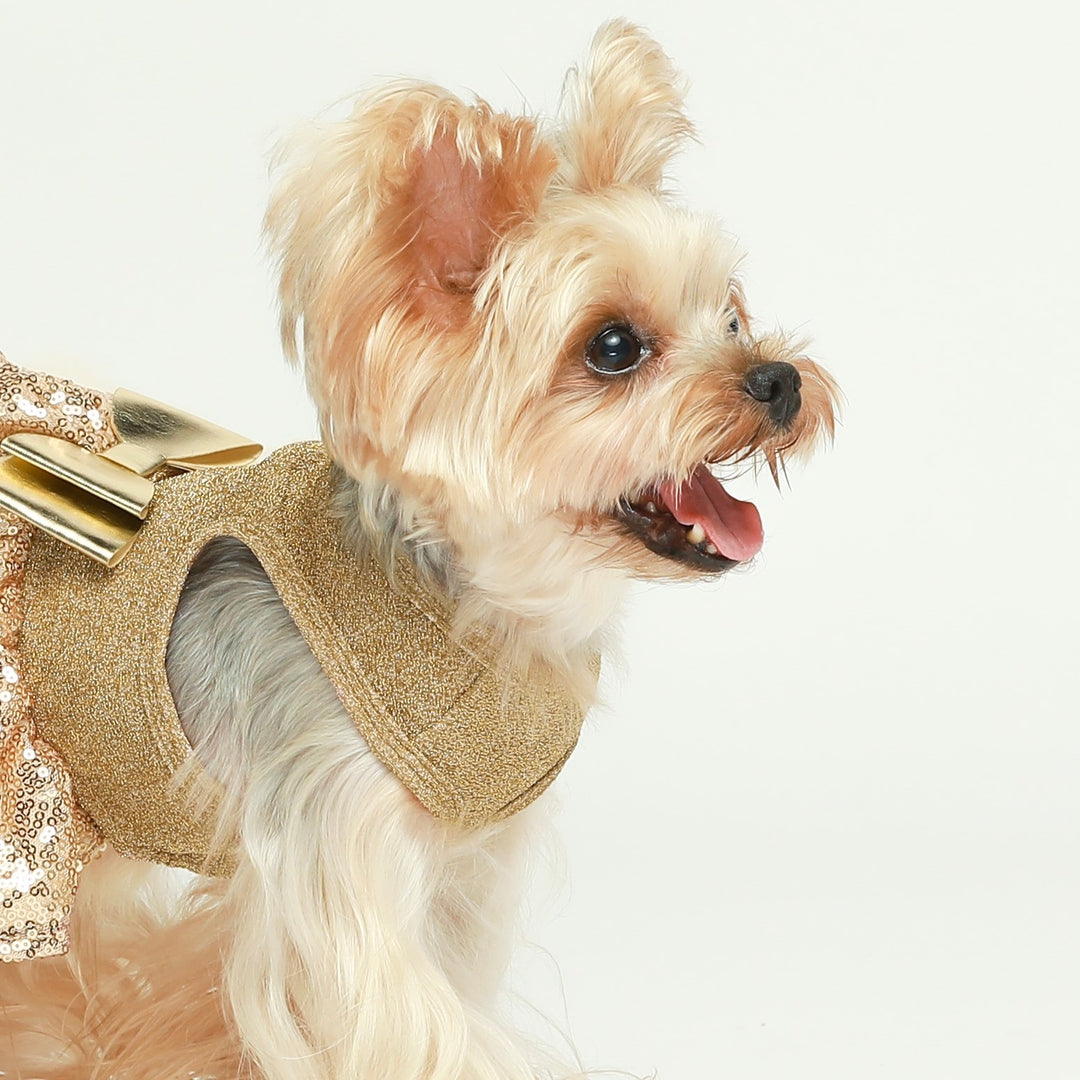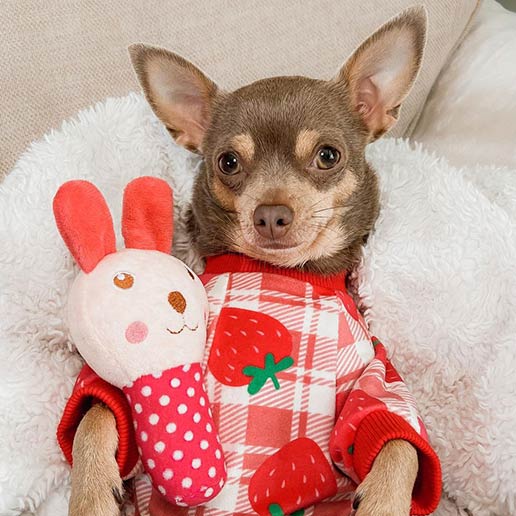Why Does Your Bichon Frise Whine
Have you ever noticed how your Bichon Frise seems to whine about as much as they wag their tail? These little balls of fluff aren’t just trying to fill the silence—they’re actually trying to tell you something. Whether it’s a nudge for a bathroom break or a plea for a bit more cuddle time, each of their whines is a message meant for your ears. So let’s get down to business and figure out what your furry friend is trying to say. We’ll explore the many reasons behind their whines and give you the scoop on how to respond.
 Instagram: yuromommy
Instagram: yuromommy1. Doggy Dialogue: Decoding Whine-Words
What’s Your Pooch Saying?
Think of your Bichon’s whines as their way of texting you in dog language. It might not always be clear at first, but there’s usually a solid reason behind each little whimper or moan. The trick is to start recognizing the patterns. Just like you know the difference between a text that says “LOL” and one that reads “SOS,” you can learn to understand whether your Bichon is feeling scared, hungry, or just wants to play fetch.
Whining for the Basics
Start with the basics: hunger, thirst, and potty breaks. If it’s close to mealtime and the whining starts, your Bichon could be reminding you that their stomach is growling. A dry water bowl can also lead to some vocal nudges. And, of course, if they’re dancing by the door, well, it’s probably time for a bathroom break!
Attention-Seeking Whimpers
Sometimes, your furry friend just wants a bit of TLC. Bichons are known for loving companionship, and a little whine might just be their way of saying, “Hey, I’m here! Let’s spend some quality time together.” This is especially true if you’ve been busy and they’ve been on their own more than usual.

Playtime Pleas
Is the whining accompanied by a toy being dropped at your feet? That’s your Bichon’s way of asking for playtime. They’re active dogs who love to engage with their humans through games. Ignoring these requests might turn into more persistent whining, as your pup tries to tell you they’re bored and need some mental and physical stimulation.
Discovering Patterns
Keeping an eye on the clock and your dog’s environment will help you start to see a pattern in their whining. Once you crack the code, you’ll find communication with your Bichon becomes a whole lot smoother. Remember, every whine has its rhyme and reason. With a little patience and attention, you’ll soon have a deeper understanding of your Bichon’s vocalizations and a happier, more harmonious home.
 Instagram: daisey_has_lazy_dayz
Instagram: daisey_has_lazy_dayz2. Shh…Training Tips for the Talkative Tyke
Quiet Time Can Be Fun
Training your Bichon Frise to tone down the whining doesn’t have to be a chore—for you or your furball. Think of it as teaching your four-legged friend a new game: The Quiet Game. It’s all about rewarding them when they choose not to whine, even when they want to. Similarly, learning how to train a Yorkshire Terrier to not bark can follow a similar approach, focusing on positive reinforcement and patience.
Praise the Silence, Ignore the Whine
When your Bichon is quiet, especially in a situation where they would usually whine, make sure to give them plenty of praise and maybe a treat or two. On the flip side, if they start to whine, try not to react immediately with attention. Wait for a pause in the whining, then acknowledge your pup. This teaches them that silence, not noise, is the way to get your attention.
Consistency is Key
Like any good habit, consistency is what makes it stick. Make sure everyone in the house knows the drill so your Bichon doesn’t get mixed messages. If one person gives in to the whining while another ignores it, your pup will get confused about what works and what doesn’t.

The Power of Distraction
Sometimes, all it takes to stop a whine in its tracks is a little distraction. A toy, a new command, or a quick play session can redirect your Bichon’s energy away from whining and towards something more positive and fun.
Professional Help Can Work Wonders
If you find that your Bichon’s whining isn’t improving with these home remedies, don’t shy away from asking for help. Dog trainers and behaviorists are like the therapists of the canine world—they’re great at getting to the heart of a behavioral issue and setting things right.
3. When Whines are Warning Signs: Health Talk
Listening to Your Bichon’s Health Cues
Sometimes, a whine isn’t just a chat or a plea for a scratch behind the ears—it’s your Bichon Frise telling you that something isn’t right on the inside. Dogs can’t say “I feel sick” or “I’m in pain,” but they can communicate distress through changes in behavior, like unexplained whining.
 Instagram: bichon_mandoo41
Instagram: bichon_mandoo41
Spotting the Symptoms
Keep an eye out for other signs that might indicate a health issue. Is your Bichon eating and drinking normally? Have their energy levels changed? Are there any differences in their bathroom habits? These clues, along with whining, could signal it’s time for a trip to the vet.
Prevention is Better Than Cure
Regular check-ups are important. Even if your Bichon seems healthy, routine visits to the vet can help catch issues before they become problems. Think of them as your ally in decoding your dog’s health-related whines.

Understanding When It’s Urgent
If your Bichon suddenly starts whining excessively and can’t seem to settle down, or if the whining is accompanied by other worrying symptoms like limping or vomiting, don’t wait. It’s better to be safe and get them checked out immediately.
Knowing Your Dog’s Normals
Every Bichon has their own ‘normal’—their standard behavior and noise level. You know your furry buddy better than anyone, so trust your gut. If their whining behavior changes abruptly or slowly becomes more frequent, it’s worth investigating.
4. Lonely Hearts Club: Is Your Bichon Singing the Blues?
The Sound of a Lonely Pooch
Bichon Frises are social butterflies, and they don’t like being left out of the fun. If you start to notice that your buddy’s whining is reaching a crescendo when they’re alone, it could be their way of saying, “I miss you!” Loneliness can strike even the most independent dogs when they spend too much time without company.
 Instagram: daisey_has_lazy_dayz
Instagram: daisey_has_lazy_dayzBoredom or Loneliness? Know the Difference
Whining due to boredom comes in short bursts, often with toys involved, as if they’re saying, “Entertain me!” But if your dog is pacing, looking out the window, or whining at the door, it’s likely loneliness. They aren’t just bored; they’re asking for companionship.
Creating a Howl-Free Happy Place
To keep loneliness and boredom at bay, try creating an environment that keeps their mind busy even when you’re not around. Interactive toys, puzzle feeders, and comfy spots with a view can make the time apart less stressful. And remember, a tired Bichon is a quiet Bichon—regular exercise can help burn off the energy that might otherwise be spent on sad songs.
The Company of Others
Is there a neighbor or a family member who can drop by for a midday visit? Maybe consider a doggy daycare or a trusted pet sitter. The sound of another heartbeat in the house can make all the difference for a lonely Bichon.

Regular Routines Rock
Dogs find comfort in routine because it makes the world predictable. Setting regular times for walks, meals, and cuddles can help reduce anxiety—and thereby noise—for your fluffy friend.
No one wants to think of their cheerful little Bichon feeling down in the dumps. By understanding the signs of loneliness and boredom, you can take steps to ensure your furry pal feels loved, whether you’re right there beside them or away at work. A happy Bichon means a quiet Bichon—and a more peaceful home for everyone.
5. In Tune with Your Bichon’s Ballads
Wrapping It Up with a Bow-Wow
As we close the curtain on our journey through the whining wonders of Bichon Frises, it’s time to reflect on what we’ve learned. Remember, your furry opera singer isn’t just performing a random aria; they’re communicating in one of the few ways they know how.
Empathy Is Your Best Tool
Understanding why your Bichon is whining is a big step towards addressing their needs. Whether they’re bored, lonely, in need of a potty break, or feeling under the weather, your empathy and quick response can make all the difference.
Patience Pays Off
Sometimes, figuring out what your Bichon wants to say can be as challenging as learning a new language. But with patience and a little detective work, you’ll soon be fluent in Bichonese. Each nuance in their whine has a purpose, and with time, you’ll unravel these mysteries.

The Bonding Power of Whine-Translation
Every whine that you interpret correctly and every need you meet strengthens the bond between you and your Bichon. It’s an investment in your relationship that will yield a loving, trusting partnership for years to come.
6. Whines and Wellness: Is Your Bichon Feeling Blue?
Health Whines on the Grapevine
Just like us, when Bichons aren’t feeling tip-top, they’re likely to vocalize their discomfort. Those whines might be their only way of saying, “Hey, I’m not okay.” It’s essential to tune in closely because sometimes the signs are subtle, but the message is important.
Reading the Signs Beyond the Whines
Pairing whining with other unusual behaviors can give you a clearer picture of your pup’s well-being. Maybe they’re eating less, or perhaps there’s a new reluctance to climb stairs or jump onto their favorite couch spot. These could be whispers of a health issue that needs attention.

The Vet Visit: Better Safe than Sorry
If your gut tells you something’s off, it’s worth a vet visit. Describe the sounds, frequencies, and accompanying behaviors to the vet. No detail is too small—what seems trivial to you may be a vital clue for a professional.
Preventative Care: Keeping the Vet Away
Regular wellness checks can prevent many issues from becoming serious. Keep up with vaccinations, dental care, flea, tick, and worm treatments. A well-maintained Bichon is a happier, quieter one.
Knowing What’s Normal for Your Bichon
Each dog has its version of ‘normal.’ As their human, you’re the expert on what’s typical behavior for your pet. Trust your observations; if the whining is new or has changed in tone, frequency, or circumstance, it’s time to pay closer attention.

There’s no substitute for knowing your Bichon inside out. By keeping an eye—and ear—out for health-related whining, you’ll be able to act swiftly if your four-legged friend is under the weather. After all, every whine is not just noise; it’s a potential clue to your Bichon’s health and happiness.
Final Thoughts
Each little whine from your Bichon Frise is basically their way of saying “Hey, let’s talk.” It might take a while to figure out what each whimper means, but it’s pretty cool when you start to get it. Maybe they’re telling you they’re ready for lunch, or they want to play, or they’re just not feeling 100%. Listening and learning what those sounds mean isn’t just about problem-solving—it’s about building an awesome friendship with your fluffy sidekick. Dive into this adventure with your Bichon; it’s about making every day together full of fun, games, and cozy snuggles.














